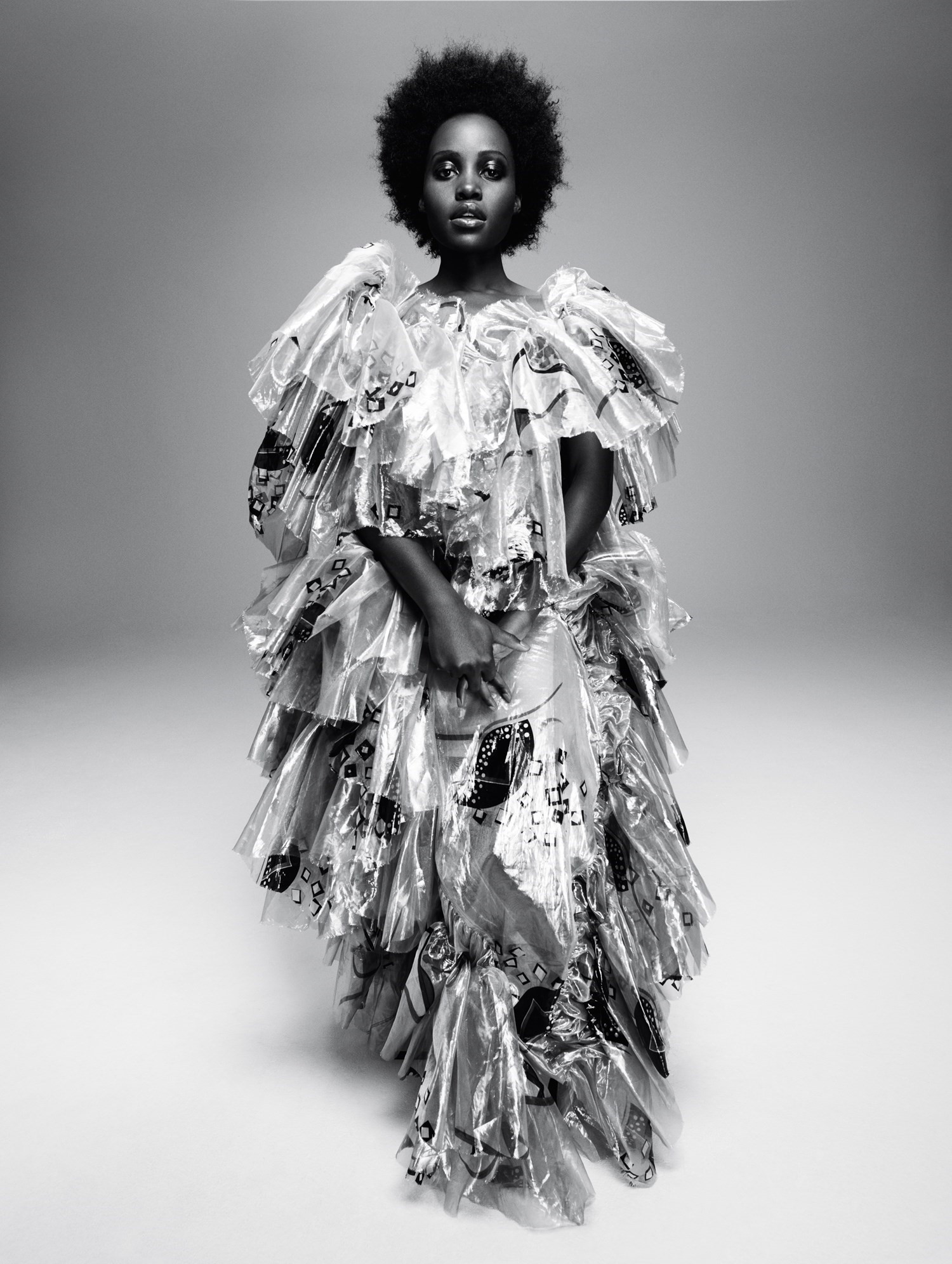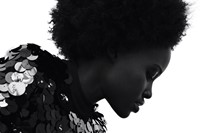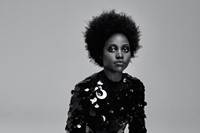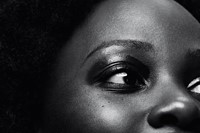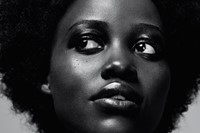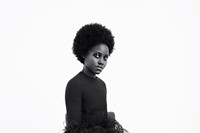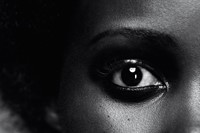1. Nyong’o’s new role in Get Out-director Jordan Peele’s new film Us – a “scary, intense, mind-bending WTF kind of story” – fulfils a long-awaited career milestone. “I’d walk off a cliff for Jordan Peele. I was madly in love with the mind of Jordan from the Key & Peele days, and I remember putting him on my ‘one day I’ll work with’ list. Then I saw Get Out. I saw it in the cinema five times in one month. I was just so fascinated by it. Then he approached me to do this film. He sent this script – I’m usually very slow at reading scripts. He sent it to me and in 24 hours I knew I would be insane to pass it up.” Nyong’o stars opposite her Black Panther co-star Winston Duke, as well as Elisabeth Moss and Tim Heidecker in the second of Peele’s five-part social thriller series.
2. The actress was born in Mexico City – her name is a diminutive of ‘Guadalupe’ – and moved to Kenya when she was one year old. “I come from a big family [she is the second of six siblings] and I’m really close to my extended family. I remember my childhood as being very vibrant, spending Sundays at one of my cousin’s houses and walking to the pool club – we’d spend all afternoon swimming and eating chips and sausage. Growing up, there was lots of noise, there were lots of people, lots of options.” She returned to her birthplace at the age of 16, to the learn the language of her passport. “I was always aware of this other place where I quote-unquote ‘belong’. That always gave me a badge of honour, I suppose, but also a curiosity.”
3. Nyong’o initially studied film production rather than acting itself – largely due to her own insecurities, combined with familial pressures. She graduated with a film and Africa studies degree from Hampshire College in Massachusetts. “I definitely had aunts come to me and say, ‘When are you going to do something serious?’ [...] but my immediate family was very supportive, I have very unconventional parents who supported all of our interests. They figured out what we were interested in and they would encourage it, without any regard to how it might one day be monetised.”
4. Ralph Fiennes gave her her first piece of acting advice – it changed the course of her career when she was a production assistant on location for Fernando Meirelles’ 2005 Oscar-winning The Constant Gardener. “I was having lunch with Ralph one day and he asked me about my interests, and I told him that I wanted to be an actor, I think. He said, ‘Only do it if there’s nothing else you want to do, if there’s nothing else you feel you could do.’ It wasn’t, ‘Here’s my number, I’ll be your mentor. It wasn’t that but he gave me a lot of food for thought.”
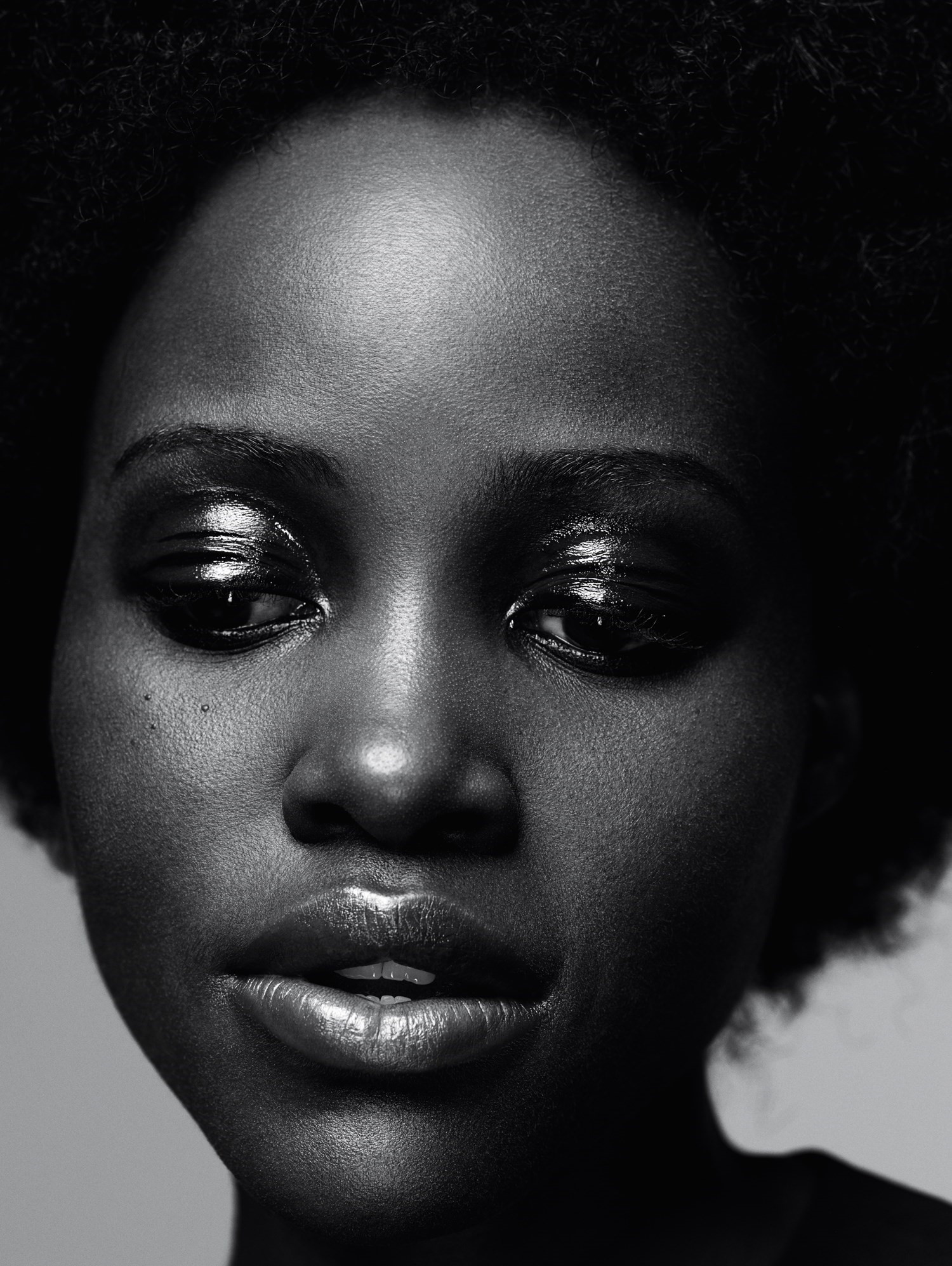
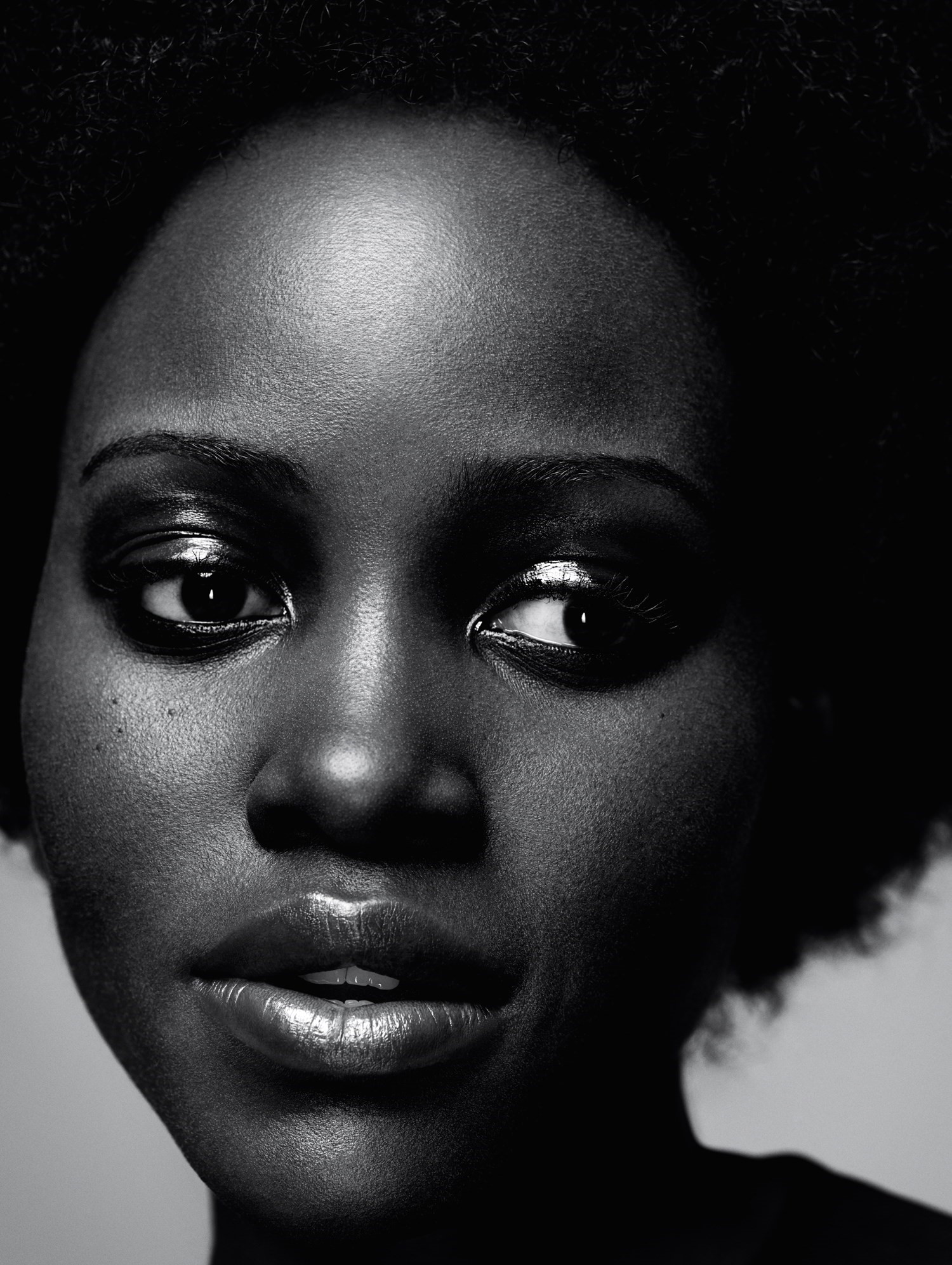
5. Nyong’o is only the sixth black actress and the first African actress to win an Oscar for Best Supporting Actress – for her role as Patsey in Steve McQueen’s 12 Years a Slave. Cast immediately after she graduated, Nyong’o remembers thinking, “This is not about, ‘Is this what I am or am not meant to do?’ It was really about rising to the opportunity that had been given to me and making sure I didn’t sabotage it with the fear that I felt stepping out into this big bad world. The size, the people, the history of cinema and American history – I needed to not psyche myself out of it and actually do the thing that I trained for three years to do and I loved to do. The film was a utopic experience, in terms of having an incredible director, an incredible script, an incredible cast and a quite joyous set experience, despite the subject matter.”
6. She hounded author Chimamanda Ngozi Adichie for the rights to her novel, Americanah, for years – before the release of 12 Years a Slave, in fact. “I pre-ordered that book and I could not put it down. To see an African woman whose identity was in flux in the way that Ifemelu’s is in the book just spoke so deeply to me. I could not stop thinking about it so I immediately contacted her. I had no stars or stripes to my name except, ‘I’m an actress from Kenya and I read your book and I love it and I’m going to be in this movie called 12 Years a Slave.’ I had no idea what that meant anyway, but I knew I wanted to make this.” Nyong’o will both star in and co-produce (alongside Brad Pitt’s production company Plan B Entertainment) the mini-series, which is currently being adapted by actress, director and friend, Danai Gurira.
7. Nyong’o sees Academy Award-nominated Black Panther as an allegory for the relationship between Africa and America, reflected in “the relationship between T’Challa and Killmonger. It’s a chance for both to consider each other’s perspective in a way that I don’t think popular culture has been effective at doing. It’s really the start of a long-overdue conversation. In no way does it call for answers, but it’s the opportunity to begin to recognise what it is we have in common. It’s like in the Sixties, with the pan-African movements, the leaders of the continent coming to study in America. [Kwame] Nkrumah meeting with Martin Luther King Jr and Malcolm X – there was a real exchange happening. I think there is a re-visitation of that kind of conversation – our histories are intertwined, whether we care to see it or not.”
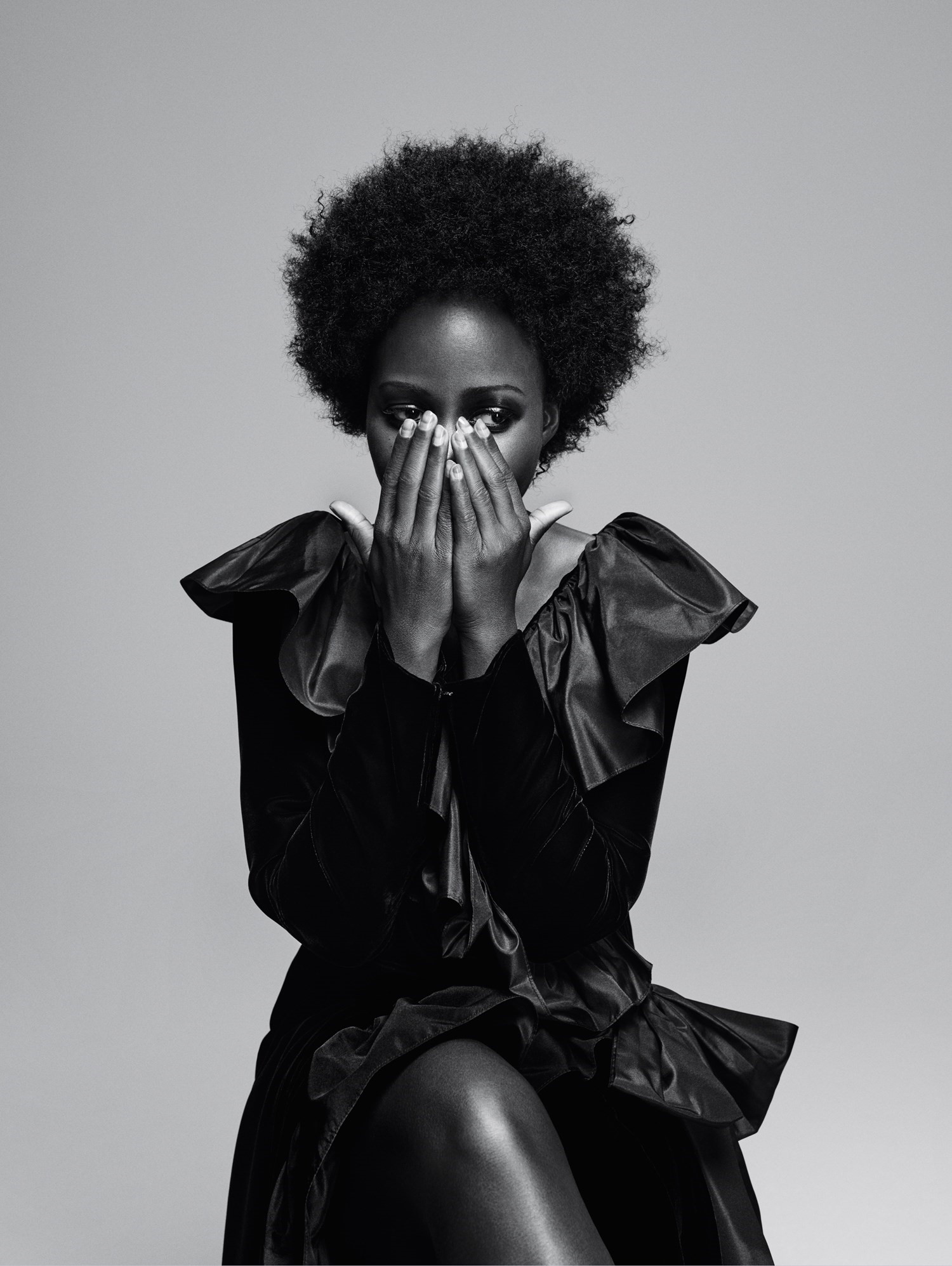
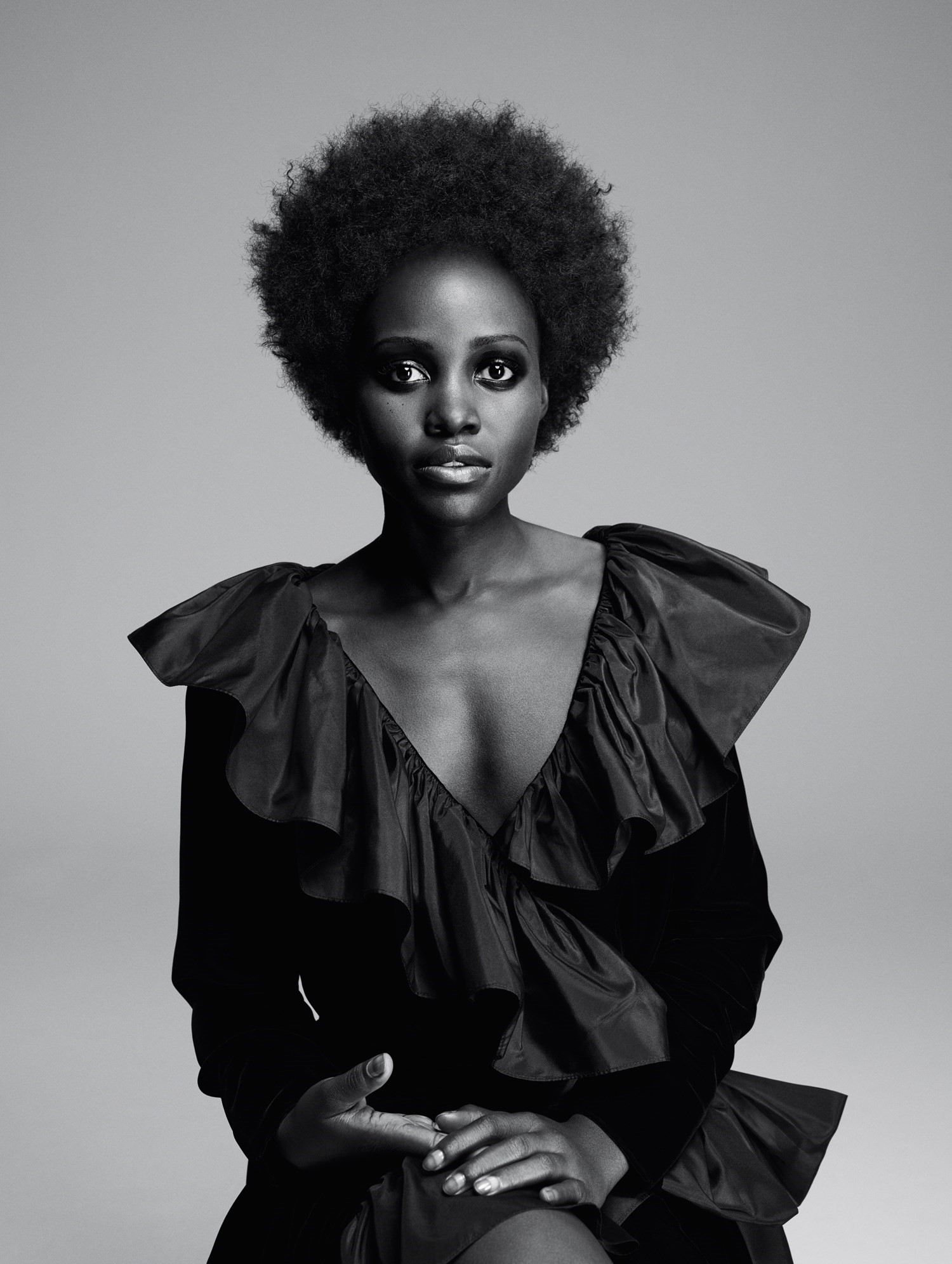
8. And that a Marvel blockbuster is a perfect medium for the message. “You mustn’t underestimate the power of story. What this Marvel ‘casing’ did was make it accessible, make it popular, make it palatable. That’s the power of a truly great story. Really, these tales of superheroes are part of modern-day folklore. As human beings, we all gather around stories. Stories are the one thing we can never get enough of because it’s the way in which we really come to terms with who we are, who we’ve been and who we’re becoming. It’s powerful, it’s meaningful, it’s really potent. That’s why a Marvel film can cause such an effect, such a spark in these schools of thought. It’s safe to walk into a Marvel movie – then you serve them a dish of some realness and they’re more prepared to eat it. That just gives more power to Ryan [Coogler] to tell stories from a visceral place. Ryan does not know how to lie and so he tells his truth, and this story was his truth. It was him grappling with his own relationship with identity, his own relationship with the continent and trying to make sense of it.”
9. She’s been vocal about her path to self-acceptance – particularly in a now-viral speech at the Essence Black Women in Hollywood event in 2014. Her power and platform only serve to ignite her passion for conversation. “I’m not weighted by it at all. I’m inspired by it. I know that every time such an opportunity comes my way, it is changing the narrative. I can play the role that someone like Alek Wek played for me growing up. Every time someone shares their experience of how I might have affected them, I’m very happy for that, but I don’t do it for the symbolism. I think the thing that’s steering me forward is not to be a symbol, it’s to be active.”
10. And Nyong’o’s written a children’s book to harness just that. The story follows protagonist Sulwe (‘star’ in Nyong’o’s native language, Luo) who, frustrated with the skin she’s in, goes on a journey to try to alter it. “Then, one night, she goes on this magical adventure that shifts her perspective of herself. It was because I wanted that message to be received by a child before the world has told them, ‘You’re not good enough.’ That is at age four or five, before you’d be interested in listening to that kind of speech. I am extremely proud of it, of the power of what it will be.”
Hair: Lacy Redway at The Wall Group. Make-up: Aaron de Mey at Art Partner. Manicure: Yuko Tsuchihashi at Susan Price NYC. Digital tech: Henri Coutant. Lighting: Romain Dubus. Photographic assistants: Stefano Ortega and Aaron Lippman. Styling assistants: Niccolo Torelli, Eugenia Gamero and Jose Miguel Dao. Hair assistant: Quilla. Make-up assistant: Tayler Treadwell. Production: One Thirty-Eight Productions. Production assistants: Emma Sparrow, Tom Hennes and Luis Jaramillo. Special thanks to Stephanie Jaillet and Eliza Allenbach at Triplelutz Paris.
The full story originally featured in the Spring/Summer 2019 issue of AnOther Magazine which will be on sale internationally from 14 February, 2019.
